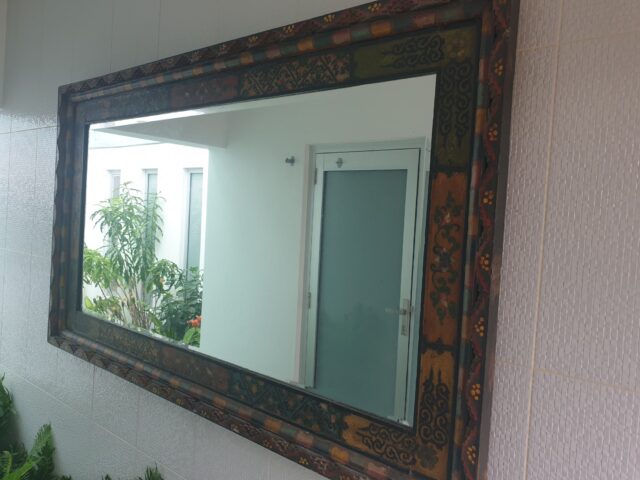If you feel your Feng Shui requirements exceed your own capabilities, you may consider hiring a professional Feng Shui consultant.
Since a good Feng Shui consultation can represent a significant cost in terms of time, money and effort, it therefore pays to find the right person for the job. It is also important that you find out what you can from the consultant before you enter into an agreement with them. As with the hiring of any professional, we all know that the best way is often through word of mouth. All of us have been advised by friends about their dentist, architect or accountant and we are less likely to doubt our friends’ opinion.
Traditionally, a Feng Shui consultant would be appraised first by their lineage and who their Master was, and secondly by their own credibility – what kind of success they have had, not only in their own lives but what success they have brought to the lives of their clients.
However nowadays it’s also important for a consultant to be a member of an officially recognized Feng Shui organization. After all would you engage the services of a builder if they were not a long standing member of the Master Builders Association? Certainly not and the same should be the case with any Feng Shui consultant, as it does afford you with some assurance regarding their training, experience and standard of professional practice.
In response to a growing demand for industry standards, the International Feng Shui Association (IFSA) was set up in 2004 by a passionate community of Feng Shui academics, experts and practitioners to spearhead the global cultivation, awareness and appreciation of Feng Shui.
Headquartered in Singapore, the IFSA’s pro-tem committee originally consisted of 11 founding members, but has since grown to over 400 members worldwide with Chapters in Australia, Japan, Poland, Romania and the United States .

In line with its mission, the IFSA has worked to globally develop Feng Shui as a profession and enhance the image of Feng Shui, particularly in terms of worldwide acceptance and credibility. In addition, the IFSA strives to foster the highest standards of Feng Shui competence and practice and also serve as a body of assistance to all Feng Shui practitioners. If you would like to know more about IFSA then please visit their website at www.intfsa.org.
Determining standards of education by which all consultants can agree to and abide by has been a very welcome development. Consultants are also required to comply with a voluntary Code of Ethics and have commercial public liability. Furthermore they are aware that they must have a certain standard of preliminary and ongoing training with a recognized and registered training facility. You can’t simply read a few books or attend a couple of weekend seminars and call yourself a qualified Feng Shui practitioner!
Here are a number of other suggestions to help you choose a feng shui consultant with the minimum of fuss and with less likelihood of disappointment. It is vital early on to determine what kind of Feng Shui the consultant practices and broadly speaking, these can be grouped into 3 sections:
1. Traditional/Classical Feng Shui:
This is by far the most authentic and comprehensive method which provides consistent results and includes the use of Form School, Compass School and Flying Star Feng Shui. For this the consultant would need a scale floor plan, the dates of birth of the occupants or employees and the date of the building’s construction to help them make their calculations and recommendations.
2. Black Hat Sect:
Black Hat Sect (BHS) is not a genuine form of Feng Shui, but unfortunately is still extensively used in the United States. The consultant would not be using complex formulae but would instead use the pa kua which would be placed in a fixed position over any individual room, home or an entire property, with the 8 sectors of the pa kua identified according to their position in relation to the main entrance. Contrary to some popular belief, this is neither a classical or authentic system and is not considered to be accurate.
3. Intuitive/Modern/Applied Feng Shui:
This could be described as an interpretation of traditional Feng Shui adapted for the West. This tends to involve observation without calculation or plan drawing and most media coverage has been of this type of Feng Shui over the years. Once again this is not an authentic or accurate system and is definitely not endorsed.
Floor Plans:
Some consultants may offer to give you advice without even visiting by remotely examining floor plans of your home. While this may seem practical if you live a very long way from the nearest registered consultant, you must also understand that this approach will have severe limitations. It is almost impossible for a consultant to properly map the ch’i of your home simply from a floor plan and it is very difficult to assess whether there are any sources of obvious visible negative ch’i surrounding or close to your property.
A Consultant’s Credentials:
Once you have established that your consultant employs authentic Feng Shui methods, begin to enquire further as to their background, training and experience in this subject. Here there will be enormous variations as some consultants may have been practising for many years but were largely self-taught.
Others may have completed modules of weekend studies with a variety of different Feng Shui teachers and have drawn from this leading to forming their own styles.
The real consultants however would have been through some kind of professional training program or studied consistently with one teacher or perhaps even a Master. Do not be afraid to press the consultant as to where, with whom they studied and especially how long they studied and how long they have been providing consultations.
Ask the consultant if they have any publicity material that they could share with you or testimonials from other previous clients.
Does the consultant have commercial public liability insurance? Generally speaking, insurance is much better developed in the UK and Australia than elsewhere in the world.
Any profession needs to have an independent body that can represent its professional members while at the same time, helping the public to establish who is a competent consultant. With the rapid rise in popularity of Feng Shui in the West over the last 20 years, it is important that the professionals get their house in order.
It is to this end that the voluntary, not for profit organizations such as the International Feng Shui Association (IFSA) have been working hard to bring together all consultants to work to an agreed standard and abide by an existing Code of Ethics. In the long term, this will not only help to develop better consultants, but will give their clients the reassurance that Feng Shui has a stable and worldwide community that is committed to excellence.
In fact the IFSA website www.intfsa.org or any of their Chapter websites in Australia, Romania or the United States are a good place to look for consultants. In addition the United Kingdom has a Feng Shui Society which can help you to find a consultant https://www.fengshuisociety.org.uk/find-a-consultant/.
The bottom line is that Feng Shui can empower us all in terms of our health, wealth and relationships. A good choice of consultant is one who embodies and represents all these areas, rather than one who is in poor health, money grabbing, or one who is constantly out of relationship with their family or former clients. It is your choice!

Fees ???????????
These vary enormously from consultant to consultant and it is vital that you are absolutely clear about what is involved before you engage anyone. Also be aware that newly trained consultants with little on the job experience will normally charge a low fee of a few hundred dollars for their services because they are still completing their apprenticeship. Conversely highly trained experienced practitioners such as an Accredited Feng Shui Master (AFSM) can draw from a bigger “toolbox” and apply advanced techniques to solve problems, therefore they will charge more.
Some consultants will charge a flat fee for the job in advance. This would include the consultation itself, their research (for example Bazi computations) and any report (verbal or written) that they promise. Depending on where you live, there may be a reasonable amount of traveling expense or time built into the price as well.
Some feng shui consultants charge on an hourly basis, whilst others (particularly in Hong Kong), charge a fixed rate based on a price per square foot. On the whole a consultation for an average sized 3 bedroom family home should take 2 – 3 hours to complete and cost anywhere between $800 to $1000, with perhaps the higher price including full Flying Star analysis and a detailed written report with a floor plan and Bazi analysis. Also fees for commercial sites are likely to be considerably more due to the complexity and size of the project.
Be clear with the consultant what kind of follow up service they offer and is it included in the package and if not, what are the charges likely to be. Most feng shui consultants will offer free follow up advice for a few reasonable questions you may have appertaining to the original consultation. Obviously this is not a carte blanche for you to keep asking the consultant new questions.
Another consideration is whether they are offering any optional extras – do they provide Feng Shui remedies, water features etc and if so, are they vital to the consultation and do you have to buy them from the consultant, or can they be bought by online or elsewhere.
Original Article written by the late Jon Sandifer in Feng Shui for Modern Living Volume 1 No 23 edited and updated by Master Janene Laird

SPONSORED






